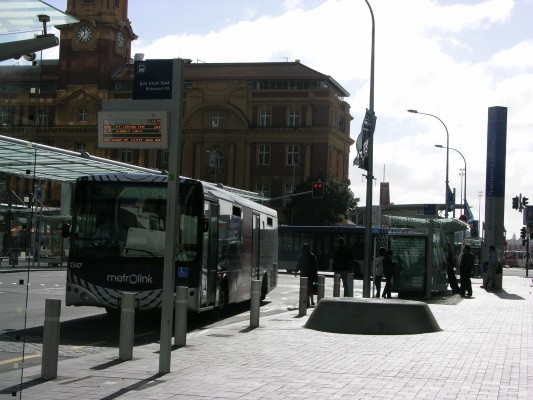SuperGold Safe For Now
The Government will put an extra $9 million into the oldies SuperGold scheme over the next two years to ensure it can keep up with growing demand – taking total Government funding for the scheme to $45 million over the next two years.
But regional councils will have to front up with more. Regional councils and operators will now be reimbursed at only 65% of the average adult fare, where currently it is 75 %. So the subsidy has changed.
Transport minister Steven Joyce says: “The Government is committed to retaining the SuperGold card free off-peak travel scheme including the transport concession as it stands. Users will continue to enjoy the same benefits they receive now,” says Mr Joyce.
But he warns that the government is “seeking greater administrative efficiency from central government and councils to ensure taxpayers get proper value for money and users get the best possible services out of this funding.”
“In addition we’ve set transport operator subsidies at a level that better reflects the benefits that flow to operators from the growing number of seniors using free off-peak public transport. “We believe these changes strike a balance and will help ensure the long-term sustainability of the scheme in the years to come.”
At the time the scheme was set up in 2008 it was agreed that a review would be undertaken after 12 months to ensure the scheme’s ongoing viability. Transport officials have been discussing changes with regional councils and operators and are now in the process of amending existing agreements.
Changes to the scheme comprise:
- Regional councils and operators will be reimbursed at 65 percent of the average adult fare for the next two financial years 2010/11 – 2011/2012 (currently 75 percent)
- Regional councils absorb administration costs so funding can be redirected to the travel concessions
- The NZ Transport Agency’s budget for administering the scheme will be significantly reduced
- A stop will be placed on major new services entering the scheme for the next two financial years.
The new reimbursement rate is subject to a hardship clause.
“Where operators can provide evidence that they would not be able to continue to offer services to SuperGold card holders at a 65 percent reimbursement rate they can apply for a higher rate for these specific services - up to the original 75 percent.
“The Government has made it clear we don’t expect operators to profit from the scheme, but neither do we expect them to be out of pocket.”
Mr Joyce says the review process demonstrated the scheme is very popular with users and is providing improved mobility for older people.
 “All those involved in the review have made it clear they want the scheme to be retained. My desired outcome is that operators, councils and ultimately SuperGold card holders all have certainty for the future”
“All those involved in the review have made it clear they want the scheme to be retained. My desired outcome is that operators, councils and ultimately SuperGold card holders all have certainty for the future”
But Labour’s acting transport spokesperson Darien Fenton said while Labour acknowledges the Government’s commitment to retain the free off-peak public transport scheme, and the injection of this $9m to ensure it can keep up with the growing demand, “we note regional councils and operators will now be reimbursed at 65 percent of the average adult fare, where currently it is 75 percent.”
“The unanswered question here is where will that money come from? Will the operators be expected to cover the 10 percent cut in funding - and that seems unlikely - or will it be regional council ratepayers? And if it is the ratepayer, where did they get to have a say in this decision by Transport Minister Steven Joyce?
Darien Fenton says today’s announcement amounts to a rolling back of the Government’s commitment to the scheme. Although “Mr Joyce claims he is “setting transport operator subsidies at a level that better reflects the benefits that flow to operators from the growing number of seniors using free off-peak public transport” what he doesn’t say is he expects ratepayers to pick up the tab.
Changes also include a requirement that Regional Councils absorb administration costs. The NZ Transport Agencies funding for administering the scheme is also being significantly reduced.
“Labour introduced the scheme in conjunction with NZ First because we believe our senior citizens deserve respect for the contributions they have made, and this is a practical way of showing that,” says Darien Fenton.
“Mr Joyce let his true feelings show when he proposed those major cutbacks, then quickly reversed his position under pressure from John Key. This reduction in central Government commitment is simply more of the same, and it’s what we’ve come to expect from Mr Joyce.”
Green Party Wellington Transport Spokesperson Sue Kedgley called the card a phenomenal success, and at less than 1% of the national transport budget, it is clearly very cost effective.
“We remain concerned about the Government’s move to reduce the fare subsidy by 10%, and require Regional Councils to absorb the administration costs. Why should regional ratepayers have to pick up the tab for national transport, health and safety benefits? We hope the Government will see the light, and continue funding this scheme well into the future,” said Ms Kedgley.











1 Comments
I dont think the operators should have ever had more than 50% of the adult fare in subsidy. Most of the card users would not be travelling by PT if it were not for the card if I am an example. Therefore any income for the seat would be better than nothing they would have had without a gold card user.
I personally wonder how many would use PT if all off peak seats were free and fully subsidised?